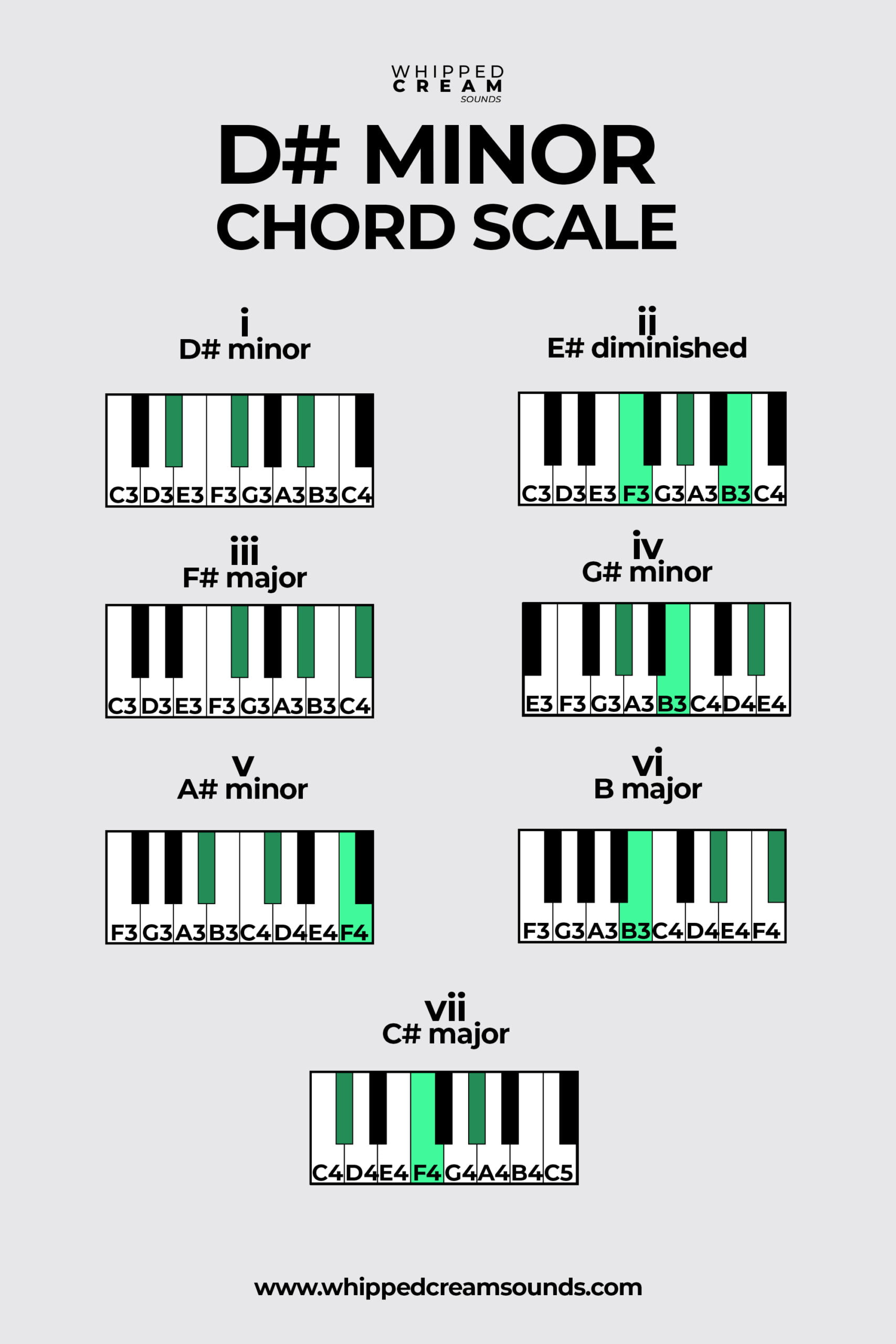My journey into music began with the strumming of a D♯ minor chord on my first guitar. The bittersweet resonance it evoked stirred something within me, plunging me headlong into the realm of musical exploration. The D♯ minor scale, with its haunting and evocative tonality, has ever since held a captivating allure for me.

Image: hellomusictheory.com
Music theory deciphers the D♯ minor scale as a sequence of notes: D♯, E, F#, G, A, B, C#, and returning to D♯. It emanates an air of inherent melancholy, evoking feelings of contemplation, introspection, and possibly even a tinge of longing.
Exploring the Melodic Intricacies of the D♯ Minor Scale
The D♯ minor scale harnesses the Phrygian mode, characterized by the lowered second interval, settling it a full step below the tonic note. This intentional dissonance imbues the scale with its distinctive, otherworldly quality. The raised fourth and sixth intervals bestow a haunting harmonic tension, lending the scale an ambiguous, ethereal aura.
Plucked or strummed with gentle grace, arpeggios in the D♯ minor scale shimmer with an almost iridescent luminosity. Harmonic progressions built around this scale evoke an emotional depth unparalleled in more conventional scales.
History and Evolution of the D♯ Minor Scale
The history of the D♯ minor scale intertwines with the evolution of Western music. Claudio Monteverdi, an Italian composer from the Baroque era, is often credited with initiating its use in the 16th century. However, it gained wider recognition and popularity in the Romantic era, with composers such as Chopin, Tchaikovsky, and Rachmaninoff leveraging its captivating qualities to express deep and complex emotions in their music.
Today, the D♯ minor scale remains a ubiquitous presence across musical genres. Modern composers, filmmakers, and musicians incorporate it into their creations, seeking to elicit specific moods and evoke certain emotional responses.
Tips for Working with the D♯ Minor Scale
Integrating the D♯ minor scale into your musical repertoire can enrich your compositions with depth and nuance. Consider these expert tips:
Begin experimenting by playing simple melodies in the D♯ minor scale. Allow its inherent expressiveness to guide your musical improvisations.
Explore the use of extended chords when building progressions in the D♯ minor scale. Incorporating 7th, 9th, and 11th chords can introduce fascinating harmonic complexities.

Image: animalia-life.club
D Sharp Minor Scale
Unraveling the Enigmatic Appeal of the D♯ Minor Scale
The D♯ minor scale holds an unwavering fascination due to its inherent emotive capabilities. Whether employed in classical compositions or contemporary music, its plaintive quality weaves a sonic tapestry that resonates profoundly with the human experience.
Often associated with sentiments of longing and solitude, music in the D♯ minor scale can also convey resilience and introspection. Its ambiguity manifests itself differently upon each listener, inviting personal interpretations and eliciting a range of nuanced emotions.
FAQ on the D♯ Minor Scale
Q: What is the key signature of the D♯ minor scale?
A: Seven sharps (#) in its key signature—F#, C#, G#, D#, A#, E#, and B#.
Q: Can you provide a musical example of the D♯ minor scale?
A: “Clair de Lune” by Claude Debussy famously showcases the D♯ minor scale’s ethereal qualities.
Q: What other genres besides classical music utilize the D♯ minor scale?
A: Contemporary genres such as jazz, rock, and film scores frequently incorporate the D♯ minor scale to create evocative atmospheres.
Conclusion
The D♯ minor scale, an enigmatic and deeply affecting musical element, beckons us to explore the depths of human emotion. Its hauntingly expressive tonality continues to captivate musicians and listeners alike, inspiring countless musical masterpieces throughout history. Whether you are a seasoned composer or just beginning your musical journey, I invite you to delve into the allure of the D♯ minor scale and discover its transformative potential in your own musical creations.